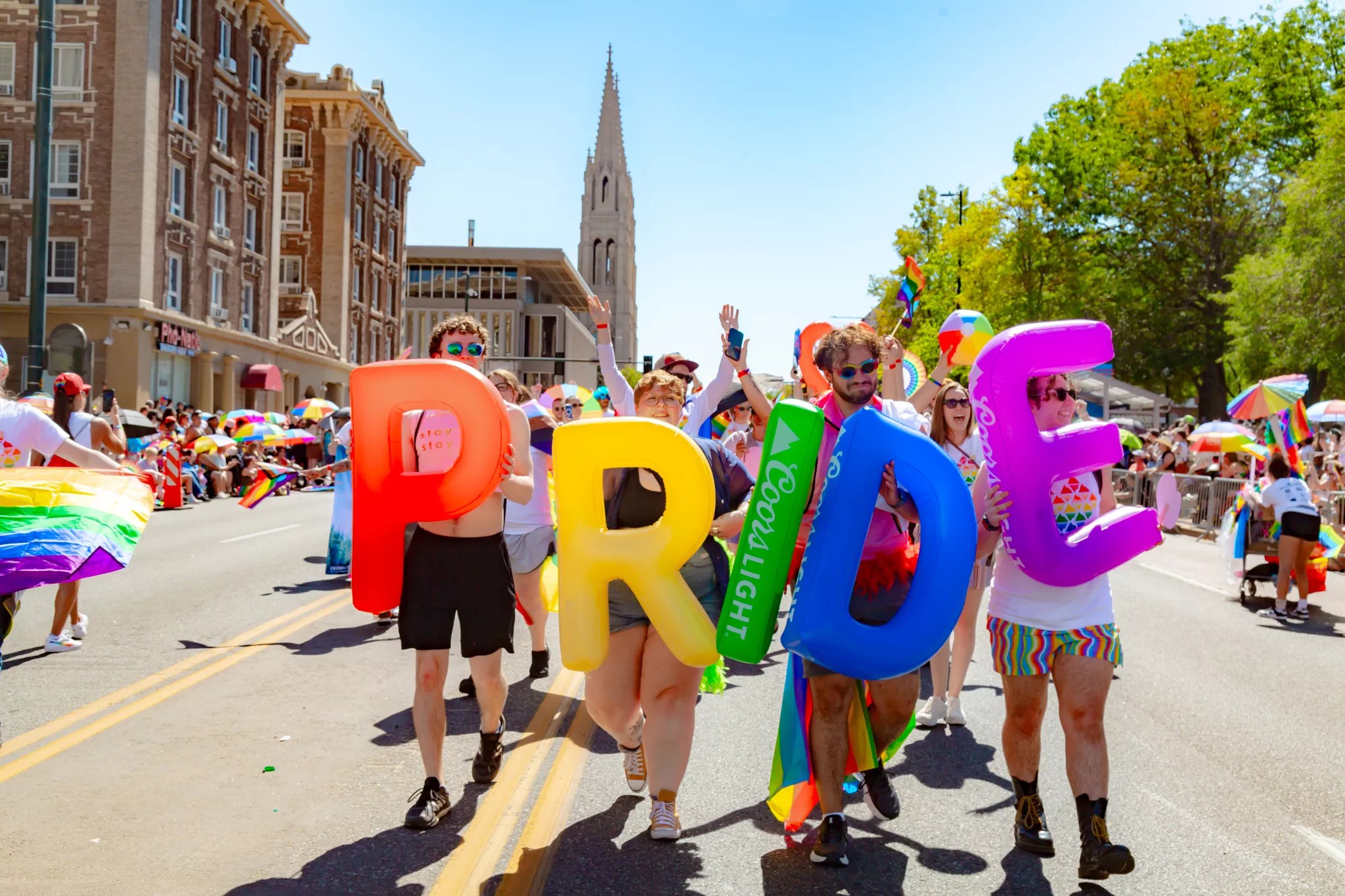
Brandon Johnson (@bjohnsonxar)

Audio By Carbonatix
A decade after same-sex marriage was legalized in Colorado, voters have the chance to make it even more official. If approved during the November election, Amendment J would remove language from the Colorado Constitution that bans same-sex marriage.
Right now, a sentence in the constitution reads: “Only a union of one man and one woman shall be valid or recognized as a marriage in this state.”
The ban hasn’t been enforced since Colorado legalized gay marriage in 2014, and the U.S. Supreme Court struck down all state bans on same-sex marriage in 2015. However, proponents of the ballot measure fear gay marriage could be at risk. After the Supreme Court overturned federal abortion rights in 2022, Justice Clarence Thomas argued that they should reconsider various past rulings, including one that codified the right to same-sex marriage.
“Our LGBTQ community is very afraid, living in fear that rights will be taken away,” said Senator Sonya Jaquez Lewis, who is married to a woman, during a Senate debate on the measure in April. “We can’t go backwards in this, we just can’t.”
The Colorado Legislature referred Amendment J to the ballot in May, with 75 out of 100 legislators voting in favor of the initiative. Although the proposal received bipartisan support, all but one of the legislators who voted against it were Republicans. The Colorado Republican Party is neutral on the measure, making it one of only two statewide initiatives the party refused to take a stance on this election.
Some critics of the ballot measure say the same-sex marriage issue is already settled, but most have relied on religious messaging, arguing that marriage should only be between a man and a woman. Representatives of the Colorado Catholic Conference and Focus on the Family echoed this sentiment while testifying against the measure at the State Capitol.
“This is a rail against God’s authority and God’s sovereignty,” Representative Scott Bottoms said while speaking against the initiative on the House floor. “People are not supposed to be making decisions about who can get married and who can’t get married. There’s only one person that makes that decision, and that’s God. And he decides. And he’s already told us in the Bible.”
Gay marriage is already the law of the land in Colorado. If Amendment J passes, it will maintain the status quo and provide additional protections in case federal precedent changes, according to proponents.
“None of us can predict what the future is going to hold,” said Senator Joann Ginal, one of the sponsors of the measure. “Growing up in the ’60s, being gay was not a popular thing. It was quite scary to be yourself. … I had to hide my real life in fear of losing my job. I have lost friends. But we have come light-years in acceptance of same-sex marriage in the last decade. … It’s time to fix this.”
This isn’t the first time Colorado has asked voters to remove problematic language from the state constitution. In 2018, voters approved a ballot measure to abolish slavery in the state by removing constitutional language that banned slavery and servitude “except as a punishment.”
The campaign in favor of Amendment J, Freedom to Marry Colorado, raised over $760,000 as of Monday, October 28, according to state campaign finance records. No formal committee was established to oppose the measure.
Some big names backing the effort include Governor Jared Polis, both of Colorado’s U.S. senators, all of the state’s Democratic congressional delegation, 29 state representatives, eleven state senators and 77 faith leaders. In addition, nearly 120 organizations have endorsed Amendment J, such as the Democratic Party of Colorado, Interfaith Alliance of Colorado, Colorado Education Association, Colorado Working Families Party, ACLU Colorado and Mental Health Colorado.
Freedom to Marry Colorado and the LGBTQ+ advocacy group One Colorado have traveled the state advocating for the ballot measure, concluding the tour on Tuesday, October 29. The tour visited voters in Glenwood Springs, Montrose, Pueblo, Durango, Grand Junction, Eagle County, Greeley, Fort Collins, Colorado Springs, Aurora and Boulder before ending in Denver.
“For democracy to truly work for all of us, it must include all of us – no matter what we look like, who we love or where we live,” says Jax Gonzalez of One Colorado.
Election Day is November 5; keep an eye on our Election topic page for all of our latest coverage.